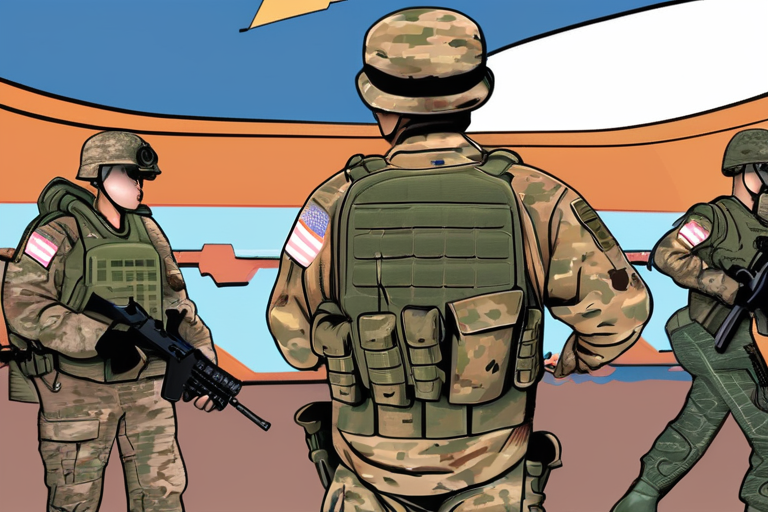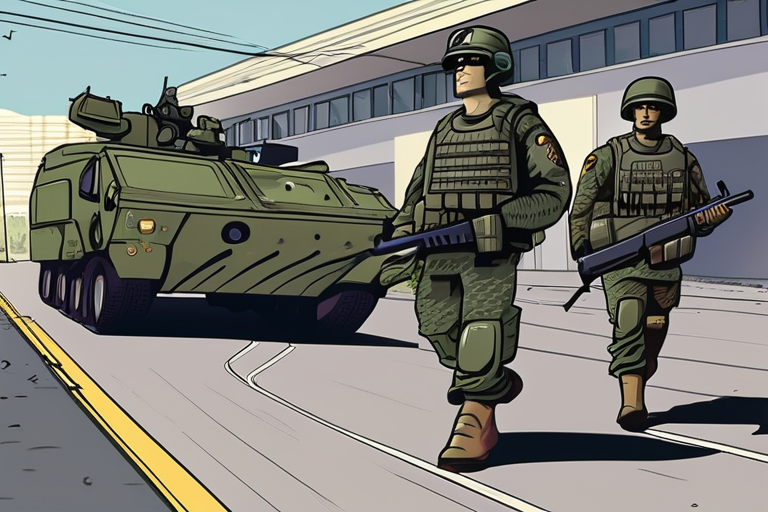National Guard Deployment Raises Questions: Deterrence vs. Long-term Costs


Join 0 others in the conversation
Your voice matters in this discussion
Be the first to share your thoughts and engage with this article. Your perspective matters!
Discover articles from our community

 Hoppi
Hoppi

 Hoppi
Hoppi

 Hoppi
Hoppi

 Hoppi
Hoppi

 Hoppi
Hoppi

 Hoppi
Hoppi

CHICAGO, BALTIMORE, AND NEW ORLEANS REACT TO TRUMP'S NATIONAL GUARD THREATS President Trump's threat to deploy National Guard troops into …

Hoppi

BREAKING NEWS: Trump Deploys National Guard Amid Rising Tensions President Donald Trump has deployed or threatened to deploy National Guard …

Hoppi

BREAKING NEWS: Americans Overwhelmingly Reject Trump's National Guard Deployments A new NPR-Ipsos poll reveals that a majority of Americans do …

Hoppi

Trump Deploys National Guard to Portland Amid "Domestic Terrorist" Claims US President Donald Trump expanded his deployment of National Guard …

Hoppi

Trump Proposes Using US Cities as Military Training Grounds In a surprise address to international military leaders, President Donald Trump …

Hoppi

BREAKING NEWS: Trump's National Guard Threats Spark Chaos in Chicago, Baltimore, New Orleans President Donald Trump has threatened to deploy …

Hoppi